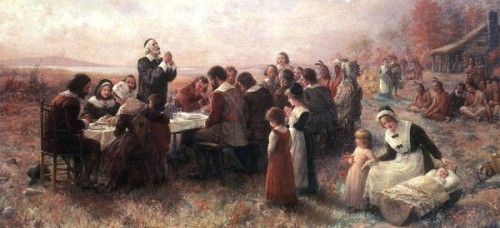 We believe and confess, that our Savior Jesus Christ did ordain and institute the sacrament of the holy supper, to nourish and support those whom he hath already regenerated, and incorporated into his family, which is his Church.
We believe and confess, that our Savior Jesus Christ did ordain and institute the sacrament of the holy supper, to nourish and support those whom he hath already regenerated, and incorporated into his family, which is his Church.
Now those, who are regenerated, have in them a two-fold life, the one corporal and temporal, which they have from the first birth, and is common to all men: the other spiritual and heavenly, which is given them in their second birth, which is effected by the word of the gospel, in the communion of the body of Christ; and this life is not common, but is peculiar to God’s elect. In like manner God hath given us, for the support of the bodily and earthly life, earthly and common bread, which is subservient thereto, and is common to all men, even as life itself. But for the support of the spiritual and heavenly life, which believers have, he hath sent a living bread, which descended from heaven, namely, Jesus Christ, who nourishes and strengthens the spiritual life of believers, when they eat him, that is to say, when they apply and receive him by faith in the spirit.
Christ, that he might represent unto us this spiritual and heavenly bread, hath instituted an earthly and visible bread, as a sacrament of his body, and wine as a sacrament of his blood, to testify by them unto us, that, as certainly as we receive and hold this sacrament in our hands, and eat and drink the same with our mouths, by which our life is afterwards nourished, we also do as certainly receive by faith (which is the hand and mouth of our soul) the true body and blood of Christ our only Savior in our souls, for the support of our spiritual life.
Now, as it is certain and beyond all doubt, that Jesus Christ hath not enjoined to us the use of his sacraments in vain, so he works in us all that he represents to us by these holy signs, though the manner surpasses our understanding, and cannot be comprehended by us, as the operations of the Holy Ghost are hidden and incomprehensible. In the meantime we err not, when we say, that what is eaten and drunk by us is the proper and natural body, and the proper blood of Christ. But the manner of our partaking of the same, is not by the mouth, but by the spirit through faith. Thus then, though Christ always sits at the right hand of his Father in the heavens, yet doth he not therefore cease to make us partakers of himself by faith. This feast is a spiritual table, at which Christ communicates himself with all his benefits to us, and gives us there to enjoy both himself, and the merits of his suffering and death, nourishing, strengthening and comforting our poor comfortless souls by the eating of his flesh, quickening and refreshing them by the drinking of his blood.
Further, though the sacraments are connected with the thing signified, nevertheless both are not received by all men: the ungodly indeed receives the sacrament to his condemnation, but he doth not receive the truth of the sacrament. As Judas, and Simon the sorcerer, both indeed received the sacrament, but not Christ, who was signified by it, of whom believers only are made partakers.
Lastly, we receive this holy sacrament in the assembly of the people of God, with humility and reverence, keeping up amongst us a holy remembrance of the death of Christ our Savior, with thanksgiving: making there confession of our faith, and of the Christian religion. Therefore no one ought to come to this table without having previously rightly examined himself; lest by eating of this bread and drinking of this cup, he eat and drink judgment to himself. In a word, we are excited by the use of this holy sacrament, to a fervent love towards God and our neighbor. Therefore we reject all mixtures and damnable inventions, which men have added unto, and blended with the sacraments, as profanations of them: and affirm that we ought to rest satisfied with the ordinance which Christ and his apostles have taught us, and that we must speak of them in the same manner as they have spoken.— Guido de Bres, Belgic Confession (1561)



